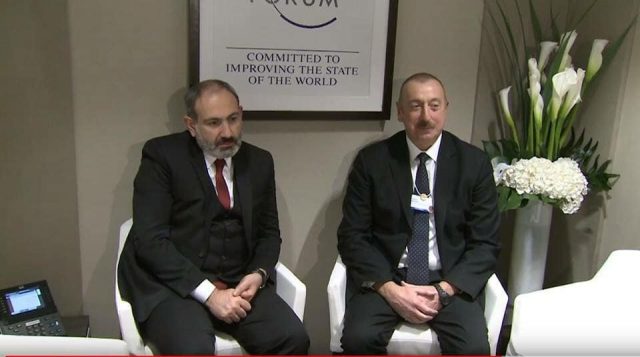The latest Pashinyan-Aliyev meeting, which took place in Davos, lasted for an hour and a half. You have to agree that that is a long time for a meeting to be considered a quick exchange of a few words. It is also difficult to imagine that the two leaders to not have discussed a few details regarding the Artsakh conflict resolution during an hour and a half meeting. I think that the time to understand Armenia’s and Azerbaijan’s position on the issue has long since passed.
Of course, it would be great for the leaders of Armenia and Azerbaijan to not avoid each other while participating in the same events. But the time has come for it to be understandable what the leaders and the foreign ministers have discussed. Otherwise, Aliyev or Mamedyarov will announce in a few days that “Azerbaijan will never accept the occupation of its territory” or that “Artsakh will never become independent,” and they will “give Armenians a high level of self-government.” After almost all meetings since 1994, Azerbaijan has given similar false responses in order to reassure its own people and to create fear within our people. The Armenian side typically responds to that by saying that no agreement was made, that the Azeri leadership’s statements are to threaten us internally, and that if any agreements are made, the people will know about it.
This process, on a propaganda level, will continue. In any case, it is better to meet and talk, even with no outcomes, than it is to shoot. But we can assume that the leaders and foreign ministers are not talking nonsense, but instead are discussing their options. I have two questions about that:
- What happened to “Vienna and St. Petersburg,” mechanisms to find the one responsible for violations of the ceasefire and to increase the number of OSCE observers, and
- Is the option being discussed similar to the “phase” or “package” solutions, such as the Kazan or Madrid Principles? Are they truly discussing the possibility of Armenia giving up territory?
I think that the answer to the second question is positive. However, it is difficult for any Armenian leader to speak about that. The first President of Armenia was the most honest about that. However, Levon Ter-Petrossian began speaking about compromises during the fall of 1997, when his legitimacy was already subject to doubt, and his honesty brought on regime change. Today, no one doubts Nikol Pashinyan’s legitimacy. Is that sufficient enough to take unpopular steps?
Aram Abrahamyan




















































